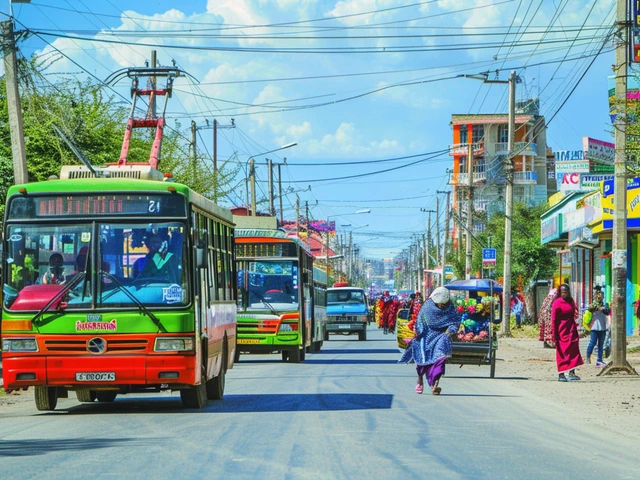Heritage and Wealth in Ethiopia: Jobs, Salaries, and Opportunities
If you ever wondered how Ethiopia’s cultural heritage shapes today’s work life, jobs, and the money people make, you’re about to get clear answers. Ethiopia isn’t just about ancient sites and colorful traditions—it’s a place where history meets a young, ambitious workforce. Job seekers from inside and outside the country are paying attention to what’s happening here.
Let’s talk jobs first. In Ethiopian cities like Addis Ababa, the job market is buzzing. While salaries might not match Western standards, the range is growing. Teachers, pharmacists, and tech workers each have their own pay scales. Teachers in urban centers, for example, can expect different rates than those working in rural schools. Healthcare roles have been on the rise lately, as more investment flows into clinics and hospitals.
Looking for higher pay? Ethiopia’s economy favors certain paths. Working in sectors like banking, telecom, or construction has helped some locals join the millionaire club. Ethiopia may not have as many millionaires as Europe, but wealth is growing. If you bump into someone with serious money in Addis, they probably own a chunk of real estate, a chain of shops, or some land.
Education helps open doors. Universities in Ethiopia are producing more skilled workers every year. Those with English and computer skills are in high demand—not just locally but with international firms setting up shop in the country. The tech scene is young but energetic, with both local startups and foreign investors interested in the potential here.
Let’s not ignore tradition, though. Agriculture, long the backbone of Ethiopian wealth, is still a major employer. Tempted to try something different? Business-minded people often find that looking at classic industries like farming or textiles, and approaching them with new ideas, really pays off. That’s where heritage meets opportunity—and it’s why investment into these areas doesn’t just help you, but also lifts communities.
Cities like Addis are also shaping what’s affordable. House rents can stretch your budget, but if you shop around—especially in smaller towns—there are real bargains. Salaries go further outside the capital. So, if your goal is to save or invest, being flexible about location can make a difference.
For foreigners, restrictions on banking and digital payments—like no official PayPal yet—mean you’ll need to plan banking and payments ahead. But for those determined to make money online, opportunities in teaching, freelancing, or e-commerce are still accessible. Ethiopians are getting creative, using every tool available to build online income, even when rules make things tricky.
All in all, Ethiopia’s blend of tradition and rapid modern growth sets the stage for a unique mix of job choices, pay scales, and business opportunities. If you want to make your career here or just invest smartly, understanding the local ways—both old and new—makes all the difference.





